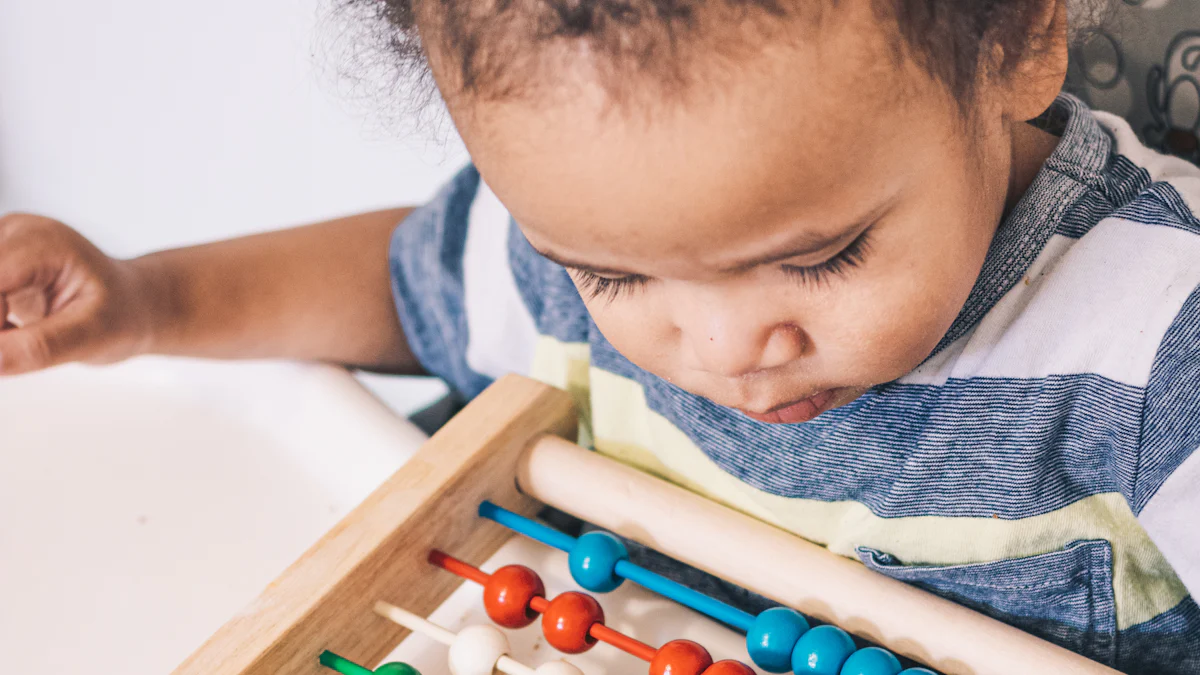How Parents Block Growth Mindset in Kids

A growth mindset involves believing that abilities and intelligence can develop through effort and learning. Children benefit greatly from this mindset. Academic success and emotional well-being improve when children embrace challenges and learn from mistakes. Parents play a crucial role in shaping their children's mindsets. Actions and language from parents can either foster or hinder growth. Praising effort over innate ability encourages persistence and resilience. Parents block growth when they focus solely on inherent qualities. Encouraging a growth mindset leads to positive outcomes in learning and development.
Understanding Growth Mindset
Definition and Importance
What is a Growth Mindset?
A growth mindset involves the belief that abilities can improve through effort and learning. Carol Dweck introduced this concept. Students with a growth mindset embrace challenges. These students believe that intelligence is not fixed. Effort leads to mastery and success.
Why is it Important for Child Development?
A growth mindset plays a crucial role in child development. Children with this mindset show resilience. These children view failures as opportunities to learn. Academic performance improves with a growth mindset. Emotional well-being also benefits from this mindset. Children develop a love for learning.
Growth Mindset vs. Fixed Mindset
Key Differences
A growth mindset differs significantly from a fixed mindset. A fixed mindset believes that abilities are static. People with a fixed mindset avoid challenges. These individuals fear failure. In contrast, a growth mindset embraces challenges. Effort and persistence lead to growth.
Impact on Learning and Development
The impact of mindset on learning and development is profound. Students with a growth mindset outperform those with a fixed mindset. These students enjoy school more. They take on challenging tasks willingly. Better grades result from a growth mindset. Emotional resilience also develops in these students.
How Parents Block Growth Mindset
Focusing on Inherent Qualities
Parents often focus on inherent qualities. This focus can block a growth mindset. Praising intelligence over effort sends a fixed message. Children hear they are smart, not hardworking. This praise creates pressure to always appear intelligent. Children may avoid challenges to maintain this image.
Praising Intelligence Over Effort
Praising intelligence suggests abilities are static. Children might fear failure because mistakes threaten their identity. Effort-based praise encourages persistence. Children learn that hard work leads to improvement. Parents should celebrate the process, not just the outcome.
Emphasizing Natural Talent
Emphasizing natural talent implies limits. Children may believe talent is enough. This belief discourages trying new things. Effort and practice become undervalued. Parents should highlight how practice enhances skills. Children then understand growth comes from dedication.
Language and Actions that Contribute to a Fixed Mindset
Language shapes beliefs. Words can reinforce a fixed mindset. Actions also play a role. Parents' responses to challenges matter. Encouragement or criticism impacts mindset development.
Examples of Fixed Mindset Language
Fixed mindset language includes phrases like "You're a natural." Such phrases imply fixed traits. Children might feel trapped by labels. Instead, use growth-oriented language. Say, "You worked hard on that." This language fosters resilience and curiosity.
Actions that Reinforce Fixed Mindset
Actions speak loudly. Ignoring mistakes reinforces a fixed mindset. Children might fear trying again. Parents should model learning from errors. Share personal stories of overcoming challenges. Demonstrate that growth involves setbacks.
"I grew up in a fixed mindset family. I was raised to believe these 'truths' like we’re not good at foreign languages." This realization highlights how deeply ingrained beliefs can pass through generations.
"One thing we’ve observed about your son,” she told me, “he seems to be unusually goal-oriented and motivated for a guy his age!” This pride shows the impact of nurturing a growth mindset.
Consequences of Blocking Growth Mindset
Impact on Academic Performance
Fear of Failure
Parents block growth when children develop a fear of failure. Children with a fixed mindset often avoid challenges. These children worry about making mistakes. Fear of failure can hinder academic performance. Students may not try new tasks. The focus remains on avoiding errors rather than learning. A survey highlights the academic impacts of a fixed mindset. Many students report anxiety about grades and tests. This anxiety stems from a fear of not meeting expectations.
Lack of Resilience
Lack of resilience emerges as another consequence. Children with a fixed mindset struggle to bounce back from setbacks. These children may give up easily. Academic challenges become overwhelming. Resilience plays a crucial role in learning. Students need resilience to tackle difficult subjects. A survey reveals that students with a growth mindset show more resilience. These students persist through tough assignments. Parents block growth by not encouraging effort and persistence.
Emotional and Social Consequences
Low Self-Esteem
Low self-esteem often results from a fixed mindset. Children who believe abilities are static may feel inadequate. These feelings lead to low confidence. Social interactions suffer as a result. Children may avoid participating in group activities. A survey indicates emotional impacts of a fixed mindset. Many students report feeling inferior to peers. Low self-esteem affects friendships and social skills.
Difficulty in Facing Challenges
Difficulty in facing challenges becomes evident. Children with a fixed mindset often avoid trying new things. These children fear failure and judgment. Challenges appear daunting and insurmountable. A survey shows that students with a growth mindset embrace challenges. These students view obstacles as opportunities to learn. Parents block growth by not fostering this perspective. Encouraging a growth mindset helps children face challenges with confidence.
Strategies to Encourage Growth Mindset

Encouraging Effort and Persistence
Effort and persistence play a crucial role in developing a growth mindset. Parents can foster these traits by focusing on how children approach tasks. Dr. Angela Duckworth emphasizes the importance of grit, which involves persistence and determination. Children who learn to persevere through challenges often excel academically.
Praising the Process
Praising the process rather than the outcome encourages children to value effort. Acknowledge the hard work and strategies used in completing a task. This approach helps children understand that success results from dedication and practice. Parents should say, "You worked really hard on this project," instead of just praising the final result.
Celebrating Small Wins
Celebrating small wins motivates children to continue striving for improvement. Recognize achievements, no matter how minor they seem. Each small victory builds confidence and reinforces the idea that progress happens over time. Parents should create an environment where every step forward is acknowledged and appreciated.
Modeling Growth Mindset Behaviors
Modeling growth mindset behaviors provides children with a clear example to follow. Parents who demonstrate a love for learning inspire their children to adopt similar attitudes. Ana Munoz highlights the importance of applying learned experiences to new challenges. Parents can show children how to embrace opportunities for growth.
Demonstrating Lifelong Learning
Demonstrating lifelong learning involves parents actively seeking knowledge and skills. Share experiences of learning something new or overcoming a difficult challenge. Children will see that learning does not stop after school. Parents can discuss books they are reading or classes they are taking to illustrate this concept.
Sharing Personal Growth Stories
Sharing personal growth stories allows children to relate to real-life examples. Discuss times when perseverance led to success. Explain how setbacks became opportunities for growth. These stories provide valuable lessons and encourage children to view challenges positively. Parents should openly talk about their own journeys and the lessons learned along the way.
"Developing a growth mindset is important for young people as they advance in the workplace or at school," says Ana Munoz. This mindset helps children apply what they have learned to new and exciting challenges. Parents block growth when they fail to model these behaviors. Embracing a growth mindset prepares children for future opportunities.
Practical Tips for Parents
Language Adjustments
Using Growth Mindset Language
Parents can transform a child's mindset by using growth-oriented language. Focus on effort and improvement rather than innate ability. Say, "You worked hard on that project," to emphasize dedication. This approach encourages children to value persistence. Parents in interviews shared their commitment to using growth mindset language with their children. Emphasizing effort over results helps children understand the value of hard work.
Avoiding Labels
Avoid labeling children based on abilities or traits. Labels like "smart" or "talented" can create pressure. Children may feel the need to always meet these expectations. Instead, highlight actions and progress. Say, "You improved a lot in math," to focus on development. This shift helps children see growth as a continuous journey.
Creating a Growth Mindset Environment
Encouraging Curiosity and Exploration
Create an environment that fosters curiosity. Encourage children to ask questions and explore new ideas. Provide opportunities for discovery through books, activities, and discussions. Parents can inspire a love for learning by showing enthusiasm for new topics. A curious mindset leads to lifelong learning and adaptability.
Providing Opportunities for Problem-Solving
Offer children chances to solve problems independently. Present challenges that require critical thinking. Encourage brainstorming and experimentation. Praise the process of finding solutions rather than just the correct answer. Children develop resilience and confidence when they tackle problems on their own. This practice nurtures a growth mindset by valuing effort and creativity.
Fostering a growth mindset in children proves essential for their development. Parents play a crucial role in this process by encouraging effort and learning. Reflect on current practices and implement changes to support growth. Emphasize the importance of challenges as opportunities for growth. Encourage curiosity and resilience in children. The long-term benefits include improved academic performance and emotional well-being. A growth mindset instills a love for learning and a willingness to take risks. Adopting this mindset helps children face challenges with confidence and determination.
See Also
Effective Strategies for Cultivating a Growth Mindset in Children
Raising Intelligent Children Who Welcome Difficult Tasks
Tips for Building Resilient Children
Frequent Mistakes Parents Make that Disrupt Children's Stability
Guiding Children to Be Compassionate in a Competitive Environment

